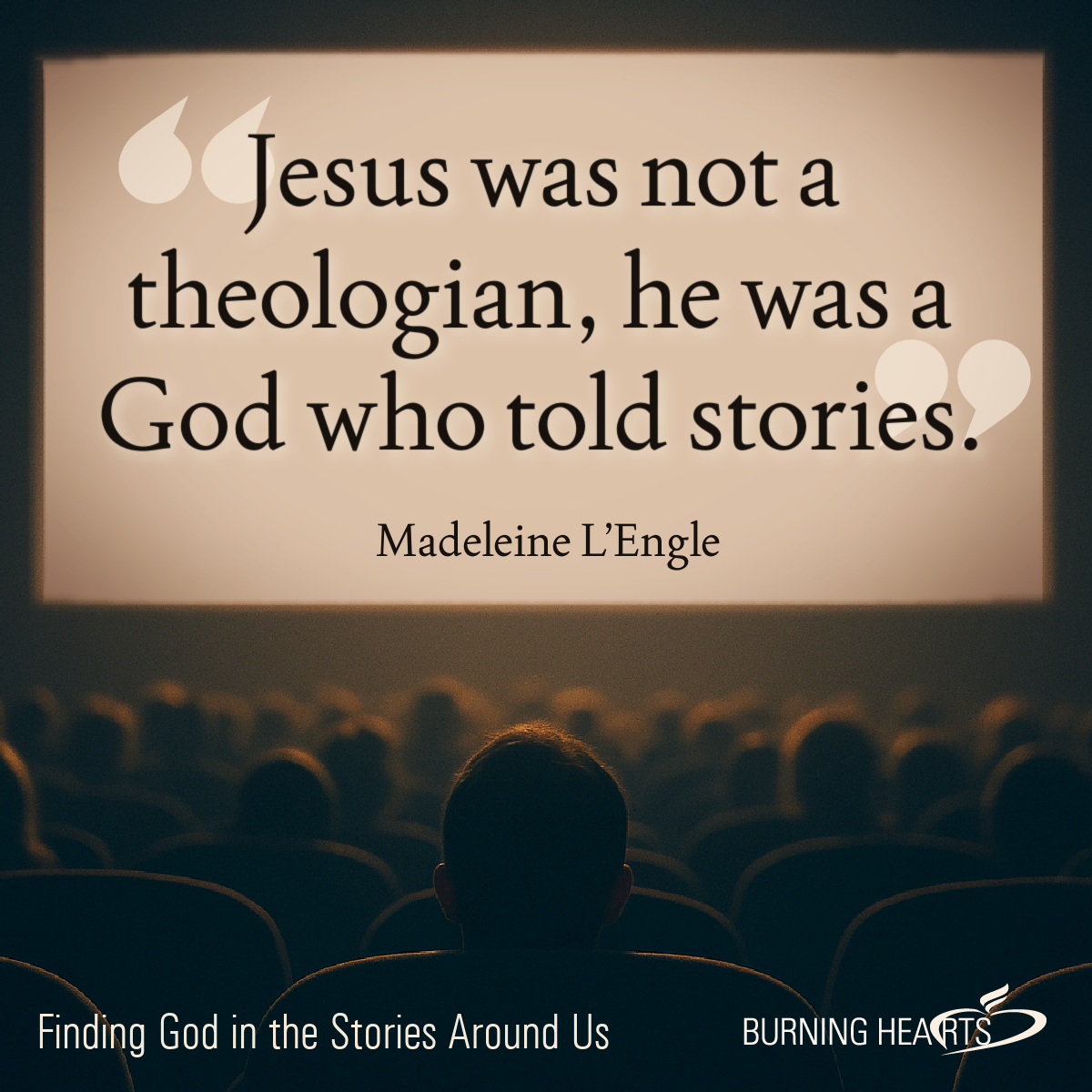Jesus rarely gave straight answers. He told stories. Farmers planting seed. A father and two sons. A traveler left for dead on the side of the road. As author Madaleine L'Engle once said, "Jesus was not a theologian, he was a God who told stories."
Why? Because stories slip past defenses. They catch your imagination before you even realize it’s happening.
And if you look around, the world is full of these kinds of stories. Movies, books, video games, even kids’ shows – sometimes they carry truth in a way a theological argument just can’t.
Why stories “out there” matter for faith
We live in a culture where people don’t usually start with authority, doctrine, or even tradition. They start with experience. And experience is almost always packaged as a story.
Think about it:
- That tear-jerker Pixar movie that makes you cry harder than you expected.
- The novel that lingers with you because it says something honest about loss.
- The superhero arc where pride gives way to sacrifice.
Stories like these highlight what’s good, expose where we’re wounded, stir up longings we might not even admit to ourselves, and sometimes – just sometimes – they drop a little grace right in our laps.
As Cardinal Timothy Dolan notes in the forward to Seeds of the Word: Finding God in The Culture:
Not only are elements of truth found in popular works in our culture, but they even help to prepare the way for the full acceptance of the Gospel! (Dec 4, 2014)
That’s not an accident. It’s the way God wired us.
From the beginning, God has chosen to reveal Himself through story. Scripture isn’t a textbook; it’s salvation history. Genesis doesn’t open with a theological essay on creation. It gives us a narrative of God speaking light into the darkness. The Gospels don’t hand us a bulleted list of doctrines. They tell us the story of Jesus’ life, death, and resurrection.
And because we’re made in His image, our hearts are tuned for story. Science even backs this up: our brains light up differently when we hear information framed as a story versus as raw data. We remember it longer. We feel it more deeply. We see ourselves in it.
That’s why a movie scene or a novel can stick with you long after the credits roll – sometimes even more than a homily or lecture. Stories go straight to the imagination, and once the imagination is engaged, the heart is open.
A Gospel “lens” for any story
The next time you watch or read something, ask yourself:
- What good is this story pointing toward?
- Where’s the wound?
- What’s the deep longing underneath?
- Where’s the glimpse of grace?
How to use this in real life
- In a small group? Show a 90-second clip, ask those four questions, and then bring in Scripture.
- In a homily? Start with the story everyone knows, then turn it with the Gospel.
- In a conversation with a friend? Ask what they’re watching or reading, listen for the longing, then connect it to what you’ve found in Jesus.
When you look through this lens, you start seeing connections everywhere:
- Les Misérables: A bishop’s radical mercy reshapes a man’s whole life.
- Inside Out: Naming feelings, and letting Sadness have a voice actually brings healing.
- Iron Man's story arc in the MCU: Conversion isn’t one-and-done. It’s a lifelong slog of forward, backward, stumble, sacrifice.
- A video game like Subnautica: beauty can cracks open anger and helps a kid finally name his grief.
The point isn’t to “baptize” every story into a one-to-one allegory. It’s to use the longing already present to point gently toward the fullness only Christ can give.
Our baptismal call: consecrating the world
At baptism, each of us was called not just to follow Jesus, but to consecrate the world– to make holy what we encounter. That doesn’t mean retreating from culture; it means engaging it with Gospel eyes.
The laity, by their very vocation, seek the kingdom of God by engaging in temporal affairs and sanctifying the world from within as a leaven. (Lumen Gentium, 31)
When we take the movies, TV shows, books, and even video games that shape our imaginations and look at them through the lens of the Gospel, we’re living out that baptismal call. We’re not just consumers of culture; we’re interpreters, storytellers, and witnesses who can reveal where God is already at work in the world.
Want to go deeper?
At Burning Hearts, we’ve gathered practical tools and guides to help you practice this. Whether it’s drawing out the Gospel themes in a favorite movie or learning how to share your own encounter with Christ, our Power of Story Hub has resources that will help you start.
One last thing
This isn’t about proving a point. It’s about opening a door. When you show someone how God’s truth, beauty, goodness, and oneness are already shimmering in the stories they love, you’re simply inviting them to take one step closer to the Storyteller Himself.


